Frequent persons on Bulgaria's street signs
countries
120 names / 1211 streets
Vasil Levski
 69
Vasil Levski, born Vasil Ivanov Kunchev, was a Bulgarian revolutionary who is, today, a national hero of Bulgaria. Dubbed the Apostle of Freedom, Levski ideologised and strategised a revolutionary...
69
Vasil Levski, born Vasil Ivanov Kunchev, was a Bulgarian revolutionary who is, today, a national hero of Bulgaria. Dubbed the Apostle of Freedom, Levski ideologised and strategised a revolutionary...
Hristo Botev
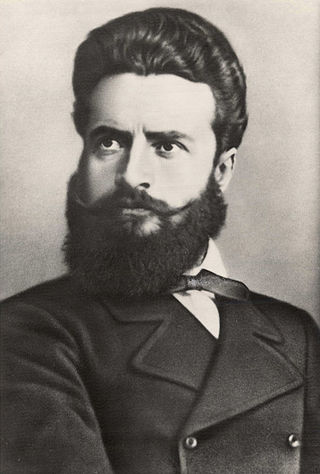 59
Hristo Botev, born Hristo Botyov Petkov, was a Bulgarian revolutionary and poet. Botev is considered by Bulgarians to be a symbolic historical figure and national hero. His poetry is a prime example...
59
Hristo Botev, born Hristo Botyov Petkov, was a Bulgarian revolutionary and poet. Botev is considered by Bulgarians to be a symbolic historical figure and national hero. His poetry is a prime example...
Aleksandar Stamboliyski
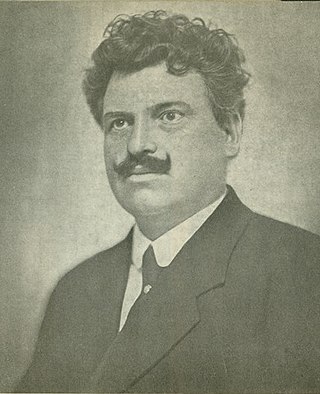 43
Aleksandar Stoimenov Stamboliyski was a Bulgarian politician who served as the Prime Minister of Bulgaria from 1919 until 1923.
43
Aleksandar Stoimenov Stamboliyski was a Bulgarian politician who served as the Prime Minister of Bulgaria from 1919 until 1923.
Cyril and Methodius
 37
Cyril and Methodius (815–885) were brothers, Byzantine Christian theologians and missionaries. For their work evangelizing the Slavs, they are known as the "Apostles to the Slavs".
37
Cyril and Methodius (815–885) were brothers, Byzantine Christian theologians and missionaries. For their work evangelizing the Slavs, they are known as the "Apostles to the Slavs".
Ivan Vazov
 32
Ivan Minchov Vazov was a Bulgarian poet, novelist and playwright, often referred to as "the Patriarch of Bulgarian literature". He was born in Sopot, a town in the Rose Valley of Bulgaria. The works...
32
Ivan Minchov Vazov was a Bulgarian poet, novelist and playwright, often referred to as "the Patriarch of Bulgarian literature". He was born in Sopot, a town in the Rose Valley of Bulgaria. The works...
Asparuh of Bulgaria
 29
Asparuh was а ruler of Bulgars in the second half of the 7th century and is credited with the establishment of the First Bulgarian Empire in 681.
29
Asparuh was а ruler of Bulgars in the second half of the 7th century and is credited with the establishment of the First Bulgarian Empire in 681.
Simeon I of Bulgaria
 27
Tsar Simeon I the Great ruled over Bulgaria from 893 to 927, during the First Bulgarian Empire. Simeon's successful campaigns against the Byzantines, Magyars and Serbs led Bulgaria to its greatest...
27
Tsar Simeon I the Great ruled over Bulgaria from 893 to 927, during the First Bulgarian Empire. Simeon's successful campaigns against the Byzantines, Magyars and Serbs led Bulgaria to its greatest...
Georgi Sava Rakovski
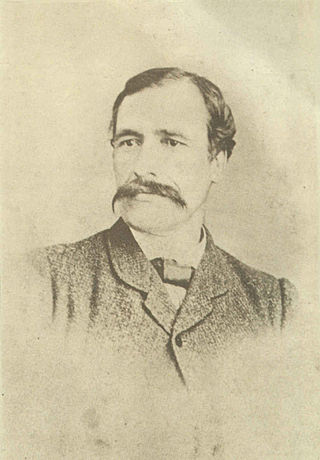 26
Georgi Stoykov Rakovski, known also Georgi Sava Rakovski, born Sabi Stoykov Popovich, was a 19th-century Bulgarian revolutionary, freemason, writer and an important figure of the Bulgarian National...
26
Georgi Stoykov Rakovski, known also Georgi Sava Rakovski, born Sabi Stoykov Popovich, was a 19th-century Bulgarian revolutionary, freemason, writer and an important figure of the Bulgarian National...
Paisius of Hilendar
 21
Saint Paisius of Hilendar or Paìsiy Hilendàrski (1722–1773) was a Bulgarian clergyman and a key Bulgarian National Revival figure. He is most famous for being the author of Istoriya...
21
Saint Paisius of Hilendar or Paìsiy Hilendàrski (1722–1773) was a Bulgarian clergyman and a key Bulgarian National Revival figure. He is most famous for being the author of Istoriya...
Georgi Benkovski
 21
Georgi Benkovski was the pseudonym of Gavril Gruev Hlatev, a Bulgarian revolutionary and leading figure in the organization and direction of the Bulgarian anti-Ottoman April Uprising of 1876 and...
21
Georgi Benkovski was the pseudonym of Gavril Gruev Hlatev, a Bulgarian revolutionary and leading figure in the organization and direction of the Bulgarian anti-Ottoman April Uprising of 1876 and...
Stefan Stambolov
 21
Stefan Nikolov Stambolov was a Bulgarian politician, journalist, revolutionary, and poet who served as Prime Minister and regent. He is considered one of the most important and popular "Founders of...
21
Stefan Nikolov Stambolov was a Bulgarian politician, journalist, revolutionary, and poet who served as Prime Minister and regent. He is considered one of the most important and popular "Founders of...
Dimitar Blagoev
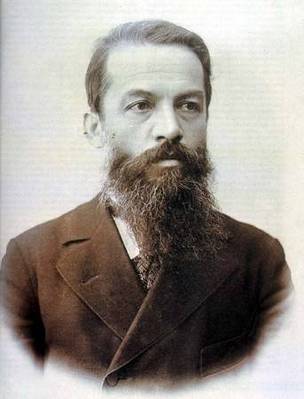 20
Dimitar Blagoev Nikolov was a Bulgarian political leader and philosopher. He was the founder of the Bulgarian left-wing political movement and of the first social-democratic party in the Balkans, the...
20
Dimitar Blagoev Nikolov was a Bulgarian political leader and philosopher. He was the founder of the Bulgarian left-wing political movement and of the first social-democratic party in the Balkans, the...
Georgi Dimitrov
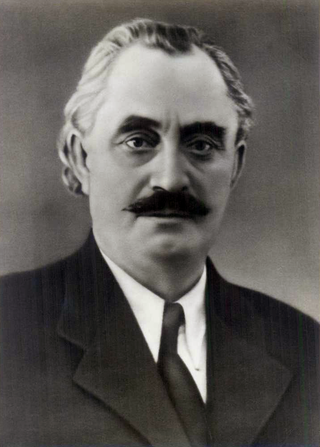 20
Georgi Dimitrov Mihaylov also known as Georgiy Mihaylovich Dimitrov, was a Bulgarian communist politician who served as General Secretary of the Bulgarian Communist Party from 1946 to 1949. From 1935...
20
Georgi Dimitrov Mihaylov also known as Georgiy Mihaylovich Dimitrov, was a Bulgarian communist politician who served as General Secretary of the Bulgarian Communist Party from 1946 to 1949. From 1935...
Stefan Karadzha
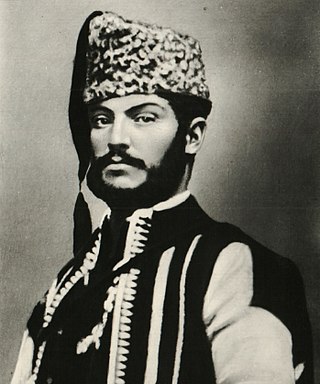 19
Stefan Karadzha was a Bulgarian revolutionary from the national liberation movement and a cheta leader. He attempted to start a rebellion against the Ottoman Empire.
19
Stefan Karadzha was a Bulgarian revolutionary from the national liberation movement and a cheta leader. He attempted to start a rebellion against the Ottoman Empire.
Alexander II of Russia
 19
Alexander II was Emperor of Russia, King of Congress Poland and Grand Duke of Finland from 2 March 1855 until his assassination in 1881. Alexander's most significant reform as emperor was the...
19
Alexander II was Emperor of Russia, King of Congress Poland and Grand Duke of Finland from 2 March 1855 until his assassination in 1881. Alexander's most significant reform as emperor was the...
Krum
 17
Krum, often referred to as Krum the Fearsome was the Khan of Bulgaria from sometime between 796 and 803 until his death in 814. During his reign the Bulgarian territory doubled in size, spreading...
17
Krum, often referred to as Krum the Fearsome was the Khan of Bulgaria from sometime between 796 and 803 until his death in 814. During his reign the Bulgarian territory doubled in size, spreading...
Lyuben Karavelov
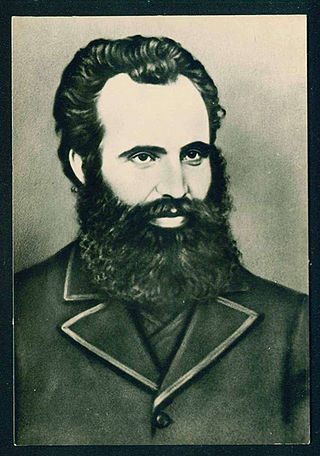 17
Lyuben Stoychev Karavelov was a Bulgarian writer and an important figure of the Bulgarian National Revival.
17
Lyuben Stoychev Karavelov was a Bulgarian writer and an important figure of the Bulgarian National Revival.
Hristo Smirnenski
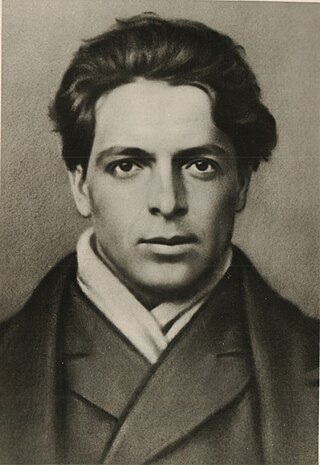 17
Hristo Dimitrov Izmirliev, known as Hristo Smirnenski, was a Bulgarian poet and prose writer who joined the Bulgarian Communist Party and whose works championed socialist ideals in a light-hearted...
17
Hristo Dimitrov Izmirliev, known as Hristo Smirnenski, was a Bulgarian poet and prose writer who joined the Bulgarian Communist Party and whose works championed socialist ideals in a light-hearted...
Boris I of Bulgaria
 17
Boris I, venerated as Saint Boris I (Mihail) the Baptizer, was the ruler (knyaz) of the First Bulgarian Empire in 852–889. The historian Steven Runciman called him one of the greatest persons in...
17
Boris I, venerated as Saint Boris I (Mihail) the Baptizer, was the ruler (knyaz) of the First Bulgarian Empire in 852–889. The historian Steven Runciman called him one of the greatest persons in...
Nikola Vaptsarov
 15
Nikola Yonkov Vaptsarov was a Bulgarian poet, communist and revolutionary. Working most of his life as a machinist, he only wrote in his spare time. Despite the fact that he only ever published one...
15
Nikola Yonkov Vaptsarov was a Bulgarian poet, communist and revolutionary. Working most of his life as a machinist, he only wrote in his spare time. Despite the fact that he only ever published one...
Clement of Ohrid
Kaloyan of Bulgaria
 14
Kaloyan or Kalojan, also known as Ivan I, Ioannitsa or Johannitsa, the Romanslayer, was emperor or tsar of Bulgaria from 1196 to 1207. He was the younger brother of Theodor and Asen, who led the...
14
Kaloyan or Kalojan, also known as Ivan I, Ioannitsa or Johannitsa, the Romanslayer, was emperor or tsar of Bulgaria from 1196 to 1207. He was the younger brother of Theodor and Asen, who led the...
Ivan Asen II
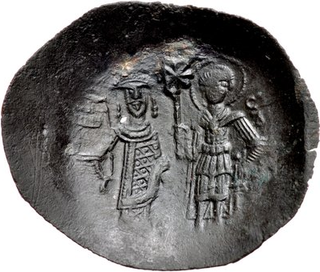 14
Ivan Asen II, also known as John Asen II, was Emperor (Tsar) of Bulgaria from 1218 to 1241. He was still a child when his father Ivan Asen I – one of the founders of the Second Bulgarian Empire – was...
14
Ivan Asen II, also known as John Asen II, was Emperor (Tsar) of Bulgaria from 1218 to 1241. He was still a child when his father Ivan Asen I – one of the founders of the Second Bulgarian Empire – was...
Zahari Stoyanov
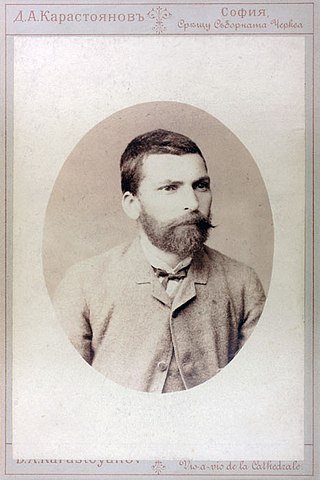 13
Zahariy Stoyanov, born Dzhendo Stoyanov Dzhedev, was a Bulgarian revolutionary, writer, and historian.
13
Zahariy Stoyanov, born Dzhendo Stoyanov Dzhedev, was a Bulgarian revolutionary, writer, and historian.
Ivaylo of Bulgaria
 13
Ivaylo, also spelled Ivailo, was a rebel leader who ruled briefly as tsar of Bulgaria. In 1277, he spearheaded a peasant uprising and forced the Bulgarian nobility to accept him as emperor. He...
13
Ivaylo, also spelled Ivailo, was a rebel leader who ruled briefly as tsar of Bulgaria. In 1277, he spearheaded a peasant uprising and forced the Bulgarian nobility to accept him as emperor. He...
Rayna Knyaginya
 13
Rayna Popgeorgieva Futekova, better known as Rayna Knyaginya, aka "Queen of the Bulgarians" was a Bulgarian teacher and revolutionary born in Panagyurishte who is famous for having sewn the flag of...
13
Rayna Popgeorgieva Futekova, better known as Rayna Knyaginya, aka "Queen of the Bulgarians" was a Bulgarian teacher and revolutionary born in Panagyurishte who is famous for having sewn the flag of...
Petar Beron
 13
Dr. Petar Beron was a Bulgarian educator.
13
Dr. Petar Beron was a Bulgarian educator.
Gotse Delchev
 12
Georgi Nikolov Delchev, known as Gotse Delchev or Goce Delčev, was an important Macedonian Bulgarian revolutionary (komitadji), active in the Ottoman-ruled Macedonia and Adrianople regions at the...
12
Georgi Nikolov Delchev, known as Gotse Delchev or Goce Delčev, was an important Macedonian Bulgarian revolutionary (komitadji), active in the Ottoman-ruled Macedonia and Adrianople regions at the...
Angel Kanchev
 12
Angel Kanchev Angelov was a Bulgarian revolutionary from Tryavna.
12
Angel Kanchev Angelov was a Bulgarian revolutionary from Tryavna.
Vasil Aprilov
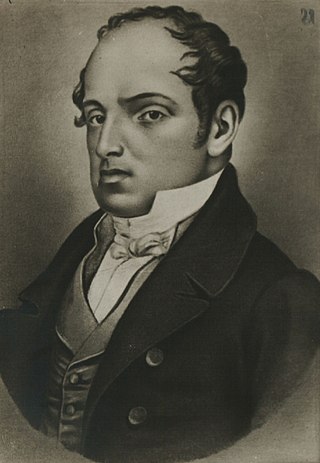 12
Vasil Evstatiev Aprilov was a Bulgarian educator. He studied in Moscow, graduated from a high school in Braşov and then pursued a medical degree in Vienna. After 1811 he was a merchant in Odessa. He...
12
Vasil Evstatiev Aprilov was a Bulgarian educator. He studied in Moscow, graduated from a high school in Braşov and then pursued a medical degree in Vienna. After 1811 he was a merchant in Odessa. He...
Aleko Konstantinov
 12
Aleko Konstantinov was a Bulgarian writer, best known for his character Bay Ganyo, one of the most popular characters in Bulgarian fiction.
12
Aleko Konstantinov was a Bulgarian writer, best known for his character Bay Ganyo, one of the most popular characters in Bulgarian fiction.
Hadzhi Dimitar
 12
Dimitar Nikolov Asenov, better known as Hadzhi Dimitar, was one of the most prominent Bulgarian voivode and revolutionaries working for the Liberation of Bulgaria from Ottoman rule.
12
Dimitar Nikolov Asenov, better known as Hadzhi Dimitar, was one of the most prominent Bulgarian voivode and revolutionaries working for the Liberation of Bulgaria from Ottoman rule.
Euthymius of Tarnovo
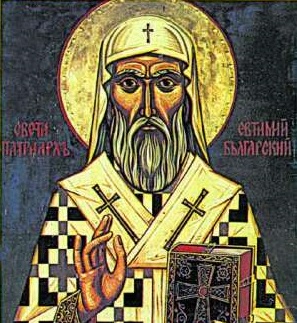 11
Saint Euthymius of Tarnovo was Patriarch of Bulgaria between 1375 and 1393. Regarded as one of the most important figures of medieval Bulgaria, Euthymius was the last head of the Bulgarian Orthodox...
11
Saint Euthymius of Tarnovo was Patriarch of Bulgaria between 1375 and 1393. Regarded as one of the most important figures of medieval Bulgaria, Euthymius was the last head of the Bulgarian Orthodox...
Samuel of Bulgaria
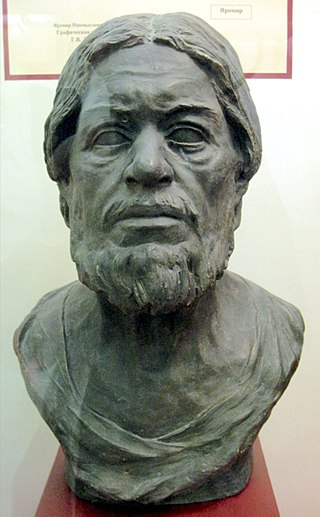 11
Samuel was the Tsar (Emperor) of the First Bulgarian Empire from 997 to 6 October 1014. From 977 to 997, he was a general under Roman I of Bulgaria, the second surviving son of Emperor Peter I of...
11
Samuel was the Tsar (Emperor) of the First Bulgarian Empire from 997 to 6 October 1014. From 977 to 997, he was a general under Roman I of Bulgaria, the second surviving son of Emperor Peter I of...
Geo Milev
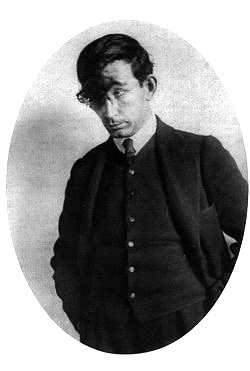 11
Geo Milev was a Bulgarian poet, translator and journalist. He is perhaps best known for his epic poem Septemvri, written during the Bulgarian September Uprising.
11
Geo Milev was a Bulgarian poet, translator and journalist. He is perhaps best known for his epic poem Septemvri, written during the Bulgarian September Uprising.
William Ewart Gladstone
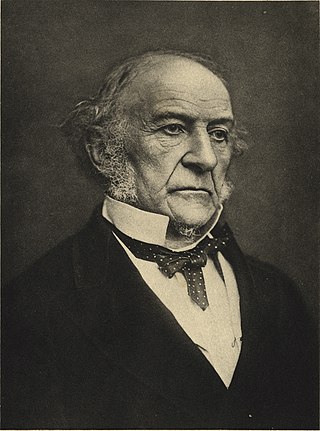 11
William Ewart Gladstone was a British statesman and Liberal politician. In a career lasting over 60 years, he served for 12 years as Prime Minister of the United Kingdom, spread over four...
11
William Ewart Gladstone was a British statesman and Liberal politician. In a career lasting over 60 years, he served for 12 years as Prime Minister of the United Kingdom, spread over four...
Peyo Yavorov
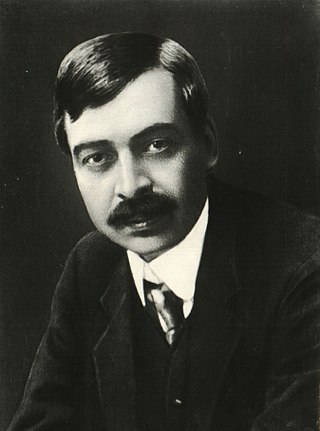 10
Peyo Yavorov was a Bulgarian Symbolist poet. He was considered to be one of the finest poetic talents in the fin de siècle Kingdom of Bulgaria. Yavorov was a prominent member of the "Misal" ("Мисъл")...
10
Peyo Yavorov was a Bulgarian Symbolist poet. He was considered to be one of the finest poetic talents in the fin de siècle Kingdom of Bulgaria. Yavorov was a prominent member of the "Misal" ("Мисъл")...
Sophronius of Vratsa
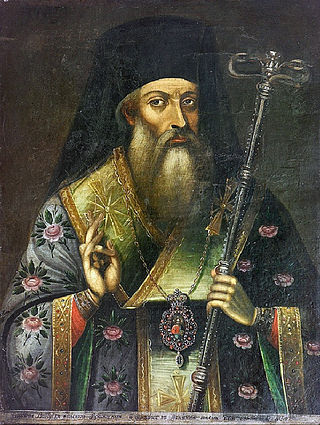 10
Saint Sophronius of Vratsa, born Stoyko Vladislavov, was a Bulgarian cleric and one of the leading figures of the early Bulgarian National Revival.
10
Saint Sophronius of Vratsa, born Stoyko Vladislavov, was a Bulgarian cleric and one of the leading figures of the early Bulgarian National Revival.
John of Rila
 9
Saint John of Rila, also known as Ivan of Rila, was the first Bulgarian hermit. He was revered as a saint while he was still alive. The legend surrounding him tells of wild animals that freely came...
9
Saint John of Rila, also known as Ivan of Rila, was the first Bulgarian hermit. He was revered as a saint while he was still alive. The legend surrounding him tells of wild animals that freely came...
Iosif Gurko
 9
Count Iosif Vladimirovich Romeyko-Gurko, also known as Joseph or Ossip Gourko, was a prominent Russian field marshal during the Russo-Turkish War (1877–1878).
9
Count Iosif Vladimirovich Romeyko-Gurko, also known as Joseph or Ossip Gourko, was a prominent Russian field marshal during the Russo-Turkish War (1877–1878).
Georgi Kirkov
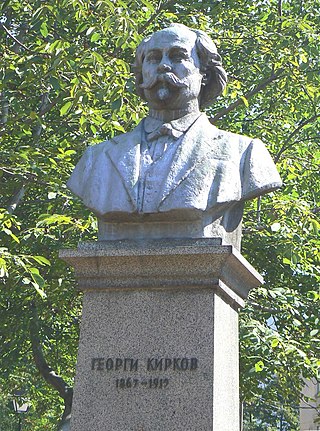 9
Georgi Iordanov Kirkov, also known by the name Master (Майстора), was a prominent Bulgarian socialist politician and writer, one of the founders of the Bulgarian Workers’ Social Democratic Party...
9
Georgi Iordanov Kirkov, also known by the name Master (Майстора), was a prominent Bulgarian socialist politician and writer, one of the founders of the Bulgarian Workers’ Social Democratic Party...
Bacho Kiro
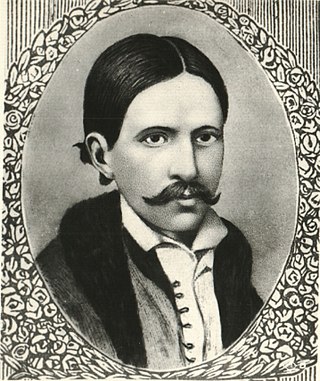 9
Bacho Kiro was the nickname of Kiro Petrov Zanev, a Bulgarian teacher, man of letters and revolutionary who took an active part in the April Uprising.
9
Bacho Kiro was the nickname of Kiro Petrov Zanev, a Bulgarian teacher, man of letters and revolutionary who took an active part in the April Uprising.
Kliment of Tarnovo
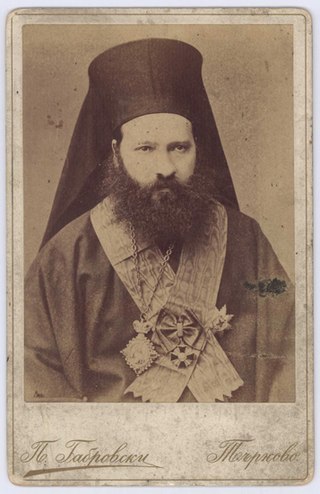 9
Kliment of Tarnovo, was a leading Bulgarian clergyman and politician. He was also a writer and one of the founders of the Bulgarian Literature Society in 1869.
9
Kliment of Tarnovo, was a leading Bulgarian clergyman and politician. He was also a writer and one of the founders of the Bulgarian Literature Society in 1869.
Ivan Shishman of Bulgaria
Elin Pelin
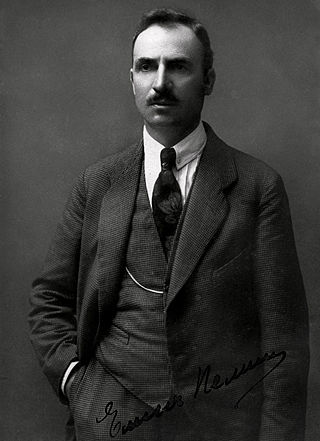 9
Elin Pelin, born Dimitar Ivanov Stoyanov was a Bulgarian writer and poet considered Bulgaria’s best narrator of the Bulgarian (Balkan) countryside and village.
9
Elin Pelin, born Dimitar Ivanov Stoyanov was a Bulgarian writer and poet considered Bulgaria’s best narrator of the Bulgarian (Balkan) countryside and village.
Miladinov brothers
 9
The Miladinov brothers, Dimitar Miladinov (1810–1862) and Konstantin Miladinov (1830–1862), were Bulgarian poets, folklorists, and activists of the Bulgarian national movement in Ottoman Macedonia....
9
The Miladinov brothers, Dimitar Miladinov (1810–1862) and Konstantin Miladinov (1830–1862), were Bulgarian poets, folklorists, and activists of the Bulgarian national movement in Ottoman Macedonia....
Neofit Rilski
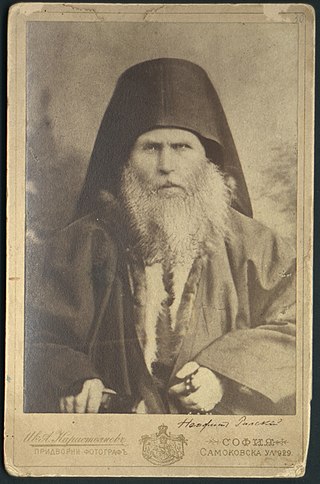 8
Neofit Rilski or Neophyte of Rila was a 19th-century Bulgarian monk, teacher and artist, and an important figure of the Bulgarian National Revival.
8
Neofit Rilski or Neophyte of Rila was a 19th-century Bulgarian monk, teacher and artist, and an important figure of the Bulgarian National Revival.
Panayot Volov
 8
Panayot Volov, also known under pseudonym Petar Vankov ), was the organizer and leader of the Gyurgevo Revolutionary Committee of the Bulgarian April Uprising against the Ottoman Empire in 1876.
8
Panayot Volov, also known under pseudonym Petar Vankov ), was the organizer and leader of the Gyurgevo Revolutionary Committee of the Bulgarian April Uprising against the Ottoman Empire in 1876.
Dragan Tsankov
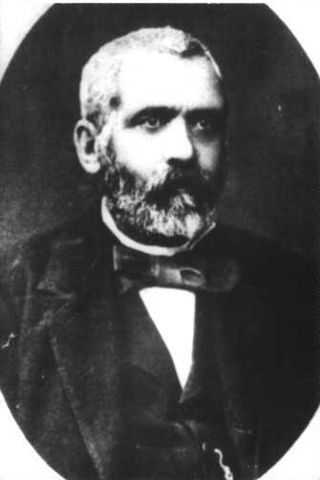 8
Dragan Kiriakov Tsankov was a Bulgarian politician and the first Liberal Party Prime Minister of the country.
8
Dragan Kiriakov Tsankov was a Bulgarian politician and the first Liberal Party Prime Minister of the country.
Todor Kableshkov
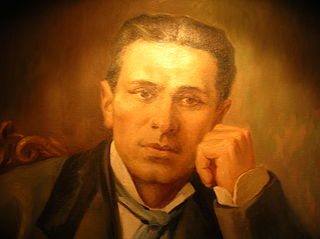 8
Todor Kableshkov was a 19th-century Bulgarian revolutionary and one of the leaders of the April Uprising.
8
Todor Kableshkov was a 19th-century Bulgarian revolutionary and one of the leaders of the April Uprising.
Rayko Daskalov
 8
Rayko Ivanov Daskalov was a Bulgarian interwar politician of the Bulgarian Agrarian National Union (BANU). One of the chief leaders of the republican Vladaya Uprising organised by deserted Bulgarian...
8
Rayko Ivanov Daskalov was a Bulgarian interwar politician of the Bulgarian Agrarian National Union (BANU). One of the chief leaders of the republican Vladaya Uprising organised by deserted Bulgarian...
Orpheus
 8
In Greek mythology, Orpheus was a Thracian bard, legendary musician and prophet. He was also a renowned poet and, according to the legend, travelled with Jason and the Argonauts in search of the...
8
In Greek mythology, Orpheus was a Thracian bard, legendary musician and prophet. He was also a renowned poet and, according to the legend, travelled with Jason and the Argonauts in search of the...
Kubrat
 8
Kubrat was the ruler of the Onogur–Bulgars, credited with establishing the confederation of Old Great Bulgaria in ca. 632. His name derived from the Turkic words qobrat — "to gather", or qurt, i.e....
8
Kubrat was the ruler of the Onogur–Bulgars, credited with establishing the confederation of Old Great Bulgaria in ca. 632. His name derived from the Turkic words qobrat — "to gather", or qurt, i.e....
Marin Drinov
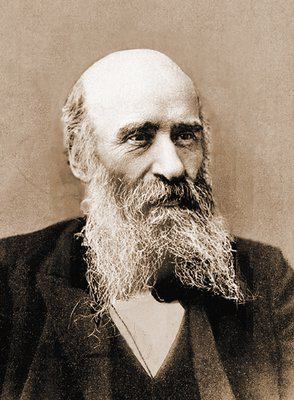 8
Marin Stoyanov Drinov was a Bulgarian historian and philologist from the National Revival period who lived and worked in Russia through most of his life.
He was one of the originators of Bulgarian...
8
Marin Stoyanov Drinov was a Bulgarian historian and philologist from the National Revival period who lived and worked in Russia through most of his life.
He was one of the originators of Bulgarian...
Petko Karavelov
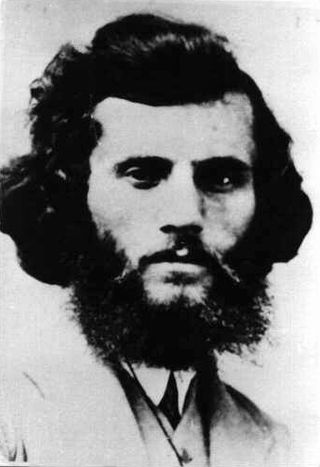 8
Petko Stoychev Karavelov was a leading Bulgarian liberal politician who served as Prime Minister on four occasions.
8
Petko Stoychev Karavelov was a leading Bulgarian liberal politician who served as Prime Minister on four occasions.
Boris III of Bulgaria
 7
Boris III, originally Boris Klemens Robert Maria Pius Ludwig Stanislaus Xaver, was the Tsar of the Kingdom of Bulgaria from 1918 until his death in 1943.
7
Boris III, originally Boris Klemens Robert Maria Pius Ludwig Stanislaus Xaver, was the Tsar of the Kingdom of Bulgaria from 1918 until his death in 1943.
Alexander of Battenberg
 7
Alexander Joseph, known as Alexander of Battenberg, was the first prince (knyaz) of the autonomous Principality of Bulgaria from 1878 until his abdication in 1886.
7
Alexander Joseph, known as Alexander of Battenberg, was the first prince (knyaz) of the autonomous Principality of Bulgaria from 1878 until his abdication in 1886.
Dobri Chintulov
 7
Dobri Petrov Chintulov was a Bulgarian poet, teacher and composer of the Bulgarian National Revival period.
7
Dobri Petrov Chintulov was a Bulgarian poet, teacher and composer of the Bulgarian National Revival period.
Vasil Kolarov
 7
Vasil Petrov Kolarov was a Bulgarian communist political leader and leading functionary in the Communist International (Comintern).
7
Vasil Petrov Kolarov was a Bulgarian communist political leader and leading functionary in the Communist International (Comintern).
Цанко Церковски
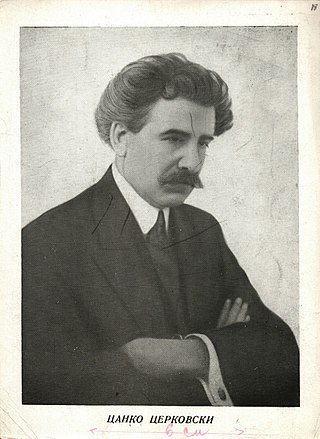 7
Цанко Церковски, псевдоним на Цанко Генов Бакалов, е български политик и писател. Той е един от основоположниците на Българския земеделски народен съюз (БЗНС).
7
Цанко Церковски, псевдоним на Цанко Генов Бакалов, е български политик и писател. Той е един от основоположниците на Българския земеделски народен съюз (БЗНС).
Yordan Yovkov
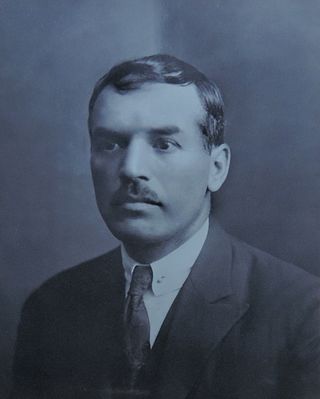 7
Yordan Stefanov Yovkov was a prominent Bulgarian writer from the interwar period.
7
Yordan Stefanov Yovkov was a prominent Bulgarian writer from the interwar period.
Petar Parchevich
 7
Petar Parchevich or Petar Mihaylov Parchev was a Bulgarian Roman Catholic archbishop, diplomat, scholar, baron of Austria and one of the architects behind the anti-Ottoman Chiprovtsi Uprising.
7
Petar Parchevich or Petar Mihaylov Parchev was a Bulgarian Roman Catholic archbishop, diplomat, scholar, baron of Austria and one of the architects behind the anti-Ottoman Chiprovtsi Uprising.
Konstantin Velichkov
 7
Konstantin Velichkov was a Bulgarian writer and public figure.
7
Konstantin Velichkov was a Bulgarian writer and public figure.
Anthim I
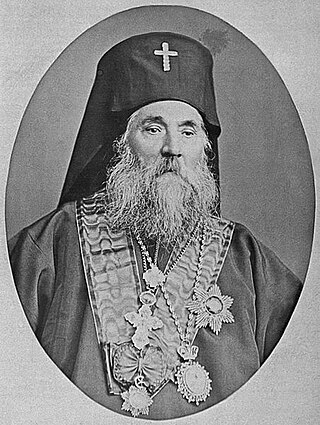 7
Anthim I was a Bulgarian education figure and clergyman, and a participant in the Bulgarian liberation and church-independence movement. He was the first head of the Bulgarian Exarchate, a post he...
7
Anthim I was a Bulgarian education figure and clergyman, and a participant in the Bulgarian liberation and church-independence movement. He was the first head of the Bulgarian Exarchate, a post he...
Yane Sandanski
 7
Yane Sandanski was a Macedonian Bulgarian revolutionary. He is recognized as a national hero in both Bulgaria and North Macedonia.
7
Yane Sandanski was a Macedonian Bulgarian revolutionary. He is recognized as a national hero in both Bulgaria and North Macedonia.
Joseph I of Bulgaria
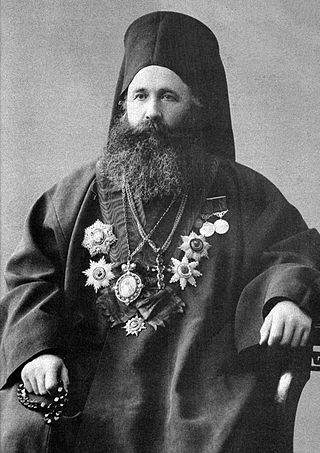 6
Exarch Joseph I was a Bulgarian Exarch from 1877 to 1915. He has great merits for preserving the unity of the Bulgarian Orthodox Church and for the Bulgarian educational and ecclesiastical work in...
6
Exarch Joseph I was a Bulgarian Exarch from 1877 to 1915. He has great merits for preserving the unity of the Bulgarian Orthodox Church and for the Bulgarian educational and ecclesiastical work in...
Nikola Petkov
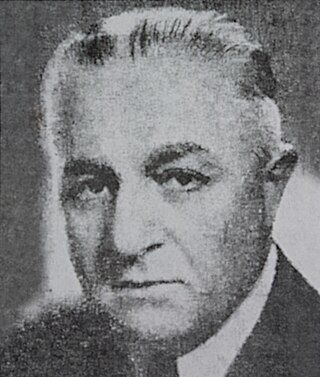 6
Nikola Dimitrov Petkov was a Bulgarian politician, one of the leaders of the Bulgarian Agrarian National Union. He entered politics in the early 1930s. Like many other peasant party leaders in...
6
Nikola Dimitrov Petkov was a Bulgarian politician, one of the leaders of the Bulgarian Agrarian National Union. He entered politics in the early 1930s. Like many other peasant party leaders in...
Panayot Hitov
 6
Panayot Ivanov Hitov was a Bulgarian hajduk, national revolutionary and voivode.
6
Panayot Ivanov Hitov was a Bulgarian hajduk, national revolutionary and voivode.
Харитон Халачев
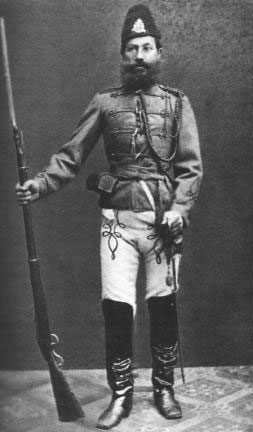 6
Поп Харитон или Харитон (Стефан) Станчев Халачев е български революционер, участник в Априлското въстание.
6
Поп Харитон или Харитон (Стефан) Станчев Халачев е български революционер, участник в Априлското въстание.
Todor Aleksandrov
 6
Todor Aleksandrov Poporushov, best known as Todor Alexandrov, also spelt as Alexandroff, was a Bulgarian revolutionary, army officer, politician and teacher. He favored initially the annexation of...
6
Todor Aleksandrov Poporushov, best known as Todor Alexandrov, also spelt as Alexandroff, was a Bulgarian revolutionary, army officer, politician and teacher. He favored initially the annexation of...
Princess Marie Louise of Bulgaria
 6
Princess Marie Louise of Bulgaria also known as Marie Louise Borisova Saxe-Coburg-Gotha, is the daughter of Tsar Boris III and Tsaritsa Ioanna and the older sister of Simeon II of Bulgaria. Her...
6
Princess Marie Louise of Bulgaria also known as Marie Louise Borisova Saxe-Coburg-Gotha, is the daughter of Tsar Boris III and Tsaritsa Ioanna and the older sister of Simeon II of Bulgaria. Her...
Васил Петлешков
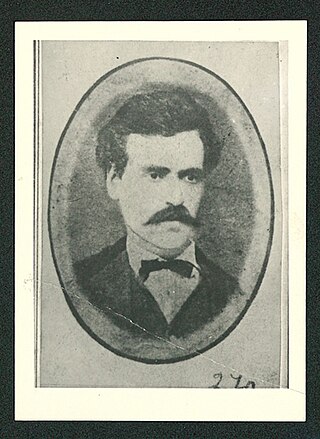 6
Васил Ангелов Петлешков е български революционер, водач на Априлското въстание в Брацигово.
6
Васил Ангелов Петлешков е български революционер, водач на Априлското въстание в Брацигово.
Filip Totyu
 6
Todor Todorov Topalov, better known under the pseudonym Filip Totyu, was a Bulgarian revolutionary of the Bulgarian National Revival period and the voivode of an armed band of volunteers.
6
Todor Todorov Topalov, better known under the pseudonym Filip Totyu, was a Bulgarian revolutionary of the Bulgarian National Revival period and the voivode of an armed band of volunteers.
Petko Voyvoda
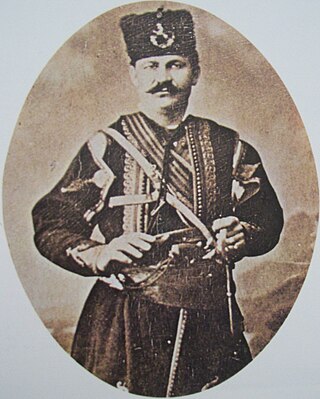 6
Petko Kirkov Kaloyanov Петко Кирков, better known as Captain Petko Voyvoda was a 19th-century Bulgarian hajduk leader and freedom fighter who dedicated his life to the liberation of Bulgaria.
6
Petko Kirkov Kaloyanov Петко Кирков, better known as Captain Petko Voyvoda was a 19th-century Bulgarian hajduk leader and freedom fighter who dedicated his life to the liberation of Bulgaria.
Yuri Gagarin
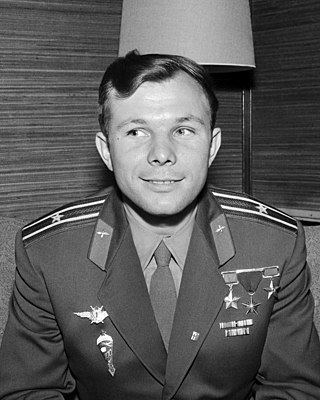 6
Yuri Alekseyevich Gagarin was a Soviet pilot and cosmonaut who, aboard the first successful crewed spaceflight, became the first human to journey into outer space. Travelling on Vostok 1, Gagarin...
6
Yuri Alekseyevich Gagarin was a Soviet pilot and cosmonaut who, aboard the first successful crewed spaceflight, became the first human to journey into outer space. Travelling on Vostok 1, Gagarin...
Omurtag of Bulgaria
 6
Omurtag also known as Murtag or Murtagon was a Great Khan (Kanasubigi) of Bulgaria from 814 to 831. He is known as "the Builder".
6
Omurtag also known as Murtag or Murtagon was a Great Khan (Kanasubigi) of Bulgaria from 814 to 831. He is known as "the Builder".
Nikolay Pavlovich Ignatyev
 5
Count Nikolay Pavlovich Ignatyev, a Russian statesman and diplomat, became best known for his aggressive expansionism in support of Russian imperialism. In dealing with China, he secured a large...
5
Count Nikolay Pavlovich Ignatyev, a Russian statesman and diplomat, became best known for his aggressive expansionism in support of Russian imperialism. In dealing with China, he secured a large...
Nikolai Stoletov
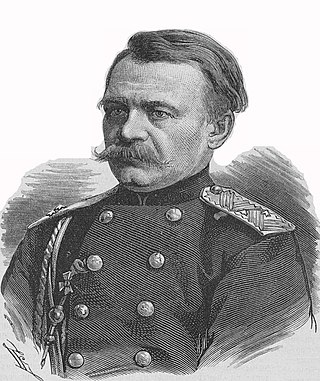 5
Nikolai Grigorevich Stoletov was a general in the Imperial Russian and Bulgarian armies. He was the brother of physicist Aleksandr Stoletov.
5
Nikolai Grigorevich Stoletov was a general in the Imperial Russian and Bulgarian armies. He was the brother of physicist Aleksandr Stoletov.
Nayden Gerov
 5
Nayden Gerov, born Nayden Gerov Hadzhidobrevich February 23, 1823, Koprivshtitsa – October 9, 1900, Plovdiv) was a Bulgarian linguist, folklorist, writer and public figure during the Bulgarian...
5
Nayden Gerov, born Nayden Gerov Hadzhidobrevich February 23, 1823, Koprivshtitsa – October 9, 1900, Plovdiv) was a Bulgarian linguist, folklorist, writer and public figure during the Bulgarian...
Stoyan Mihaylovski
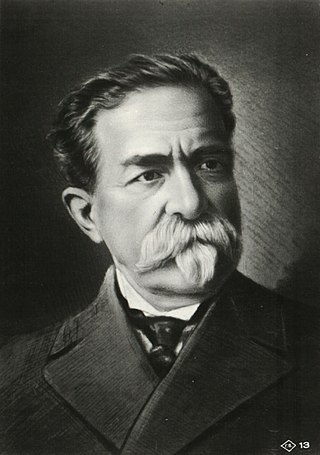 5
Stoyan Nikolov Mihaylovski was a Bulgarian writer and social figure.
5
Stoyan Nikolov Mihaylovski was a Bulgarian writer and social figure.
Pencho Slaveykov
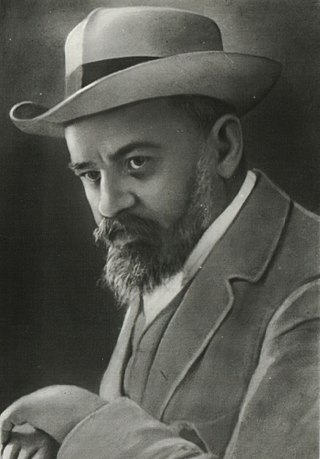 5
Pencho Petkov Slaveykov was a noted Bulgarian poet and one of the participants in the Misal ("Thought") circle. He was the youngest son of the writer Petko Slaveykov.
5
Pencho Petkov Slaveykov was a noted Bulgarian poet and one of the participants in the Misal ("Thought") circle. He was the youngest son of the writer Petko Slaveykov.
Zahari Zograf
 5
Zahariy Hristovich Dimitrov (1810–1853), better known as Zahari Zograf is a famous Bulgarian painter of the Bulgarian National Revival, noted for his church mural paintings and icons and often...
5
Zahariy Hristovich Dimitrov (1810–1853), better known as Zahari Zograf is a famous Bulgarian painter of the Bulgarian National Revival, noted for his church mural paintings and icons and often...
Тонка Обретенова
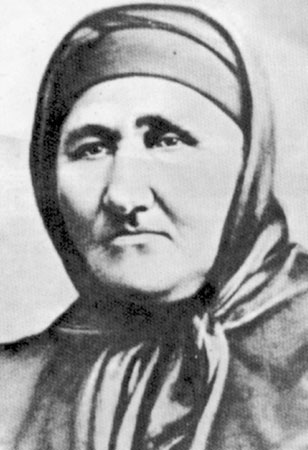 5
Тонка Тончева Обретенова е българска националреволюционерка и героиня.
5
Тонка Тончева Обретенова е българска националреволюционерка и героиня.
Георги Кондолов
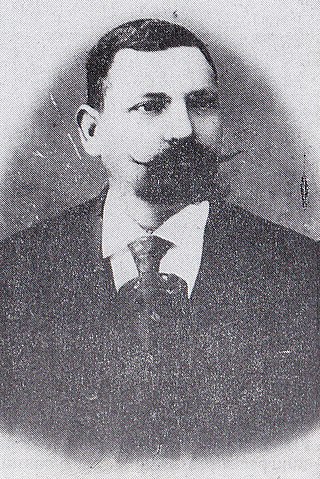 5
Желязко Димитров Кондолов, повече известен като Георги Кондолов, е български революционер, войвода на Вътрешната македоно-одринска революционна организация, водач на Преображенското въстание....
5
Желязко Димитров Кондолов, повече известен като Георги Кондолов, е български революционер, войвода на Вътрешната македоно-одринска революционна организация, водач на Преображенското въстание....
Neofit Bozveli
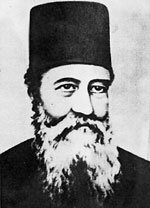 5
Neofit Bozveli was a Bulgarian cleric and enlightener and one of the leaders of the Bulgarian Church struggle.
5
Neofit Bozveli was a Bulgarian cleric and enlightener and one of the leaders of the Bulgarian Church struggle.
Yanko Sakazov
 4
Yanko Ivanov Sakazov was a Bulgarian socialist politician.
4
Yanko Ivanov Sakazov was a Bulgarian socialist politician.
Peter I of Bulgaria
 4
Peter I was emperor (tsar) of Bulgaria from 27 May 927 to 969. Facing the Bogomil heresy and rebellions by his brothers and also by Časlav Klonimirović early on in his reign, Peter secured more...
4
Peter I was emperor (tsar) of Bulgaria from 27 May 927 to 969. Facing the Bogomil heresy and rebellions by his brothers and also by Časlav Klonimirović early on in his reign, Peter secured more...
Maxim Gorky
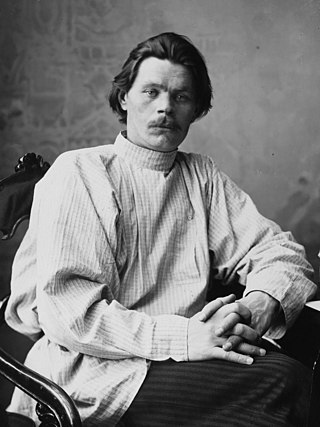 4
Alexei Maximovich Peshkov, popularly known as Maxim Gorky, was a Russian and Soviet writer and socialism proponent. He was nominated five times for the Nobel Prize in Literature. Before his success...
4
Alexei Maximovich Peshkov, popularly known as Maxim Gorky, was a Russian and Soviet writer and socialism proponent. He was nominated five times for the Nobel Prize in Literature. Before his success...
Ivan Alexander of Bulgaria
 4
Ivan Alexander, also sometimes Anglicized as John Alexander, ruled as Emperor (Tsar) of Bulgaria from 1331 to 1371, during the Second Bulgarian Empire. The date of his birth is unknown. He died on 17...
4
Ivan Alexander, also sometimes Anglicized as John Alexander, ruled as Emperor (Tsar) of Bulgaria from 1331 to 1371, during the Second Bulgarian Empire. The date of his birth is unknown. He died on 17...
Dimcho Debelyanov
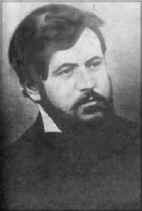 4
Dimcho Debelyanov was a Bulgarian poet and author.
4
Dimcho Debelyanov was a Bulgarian poet and author.
Chavdar Voyvoda
 4
Chavdar was a 16th-century semi-legendary Bulgarian hajduk voivode, a leader of a band of outlaws and a protector of the people against Ottoman injustice. Hajduks would usually take to the woods and...
4
Chavdar was a 16th-century semi-legendary Bulgarian hajduk voivode, a leader of a band of outlaws and a protector of the people against Ottoman injustice. Hajduks would usually take to the woods and...
Grigor Parlichev
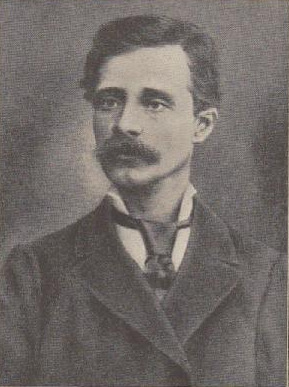 4
Grigor Stavrev Parlichev was a Bulgarian writer, teacher and translator. He was born on January 18, 1830, in Ohrid, Ottoman Empire and died in the same town on January 25, 1893. Although he thought...
4
Grigor Stavrev Parlichev was a Bulgarian writer, teacher and translator. He was born on January 18, 1830, in Ohrid, Ottoman Empire and died in the same town on January 25, 1893. Although he thought...
Konstantin Jireček
 4
Konstantin Josef Jireček was an Austro-Hungarian Czech historian, politician, diplomat, and Slavist. He was the founder of Bohemian Balkanology and Byzantine studies, and wrote extensively on...
4
Konstantin Josef Jireček was an Austro-Hungarian Czech historian, politician, diplomat, and Slavist. He was the founder of Bohemian Balkanology and Byzantine studies, and wrote extensively on...
Yuriy Venelin
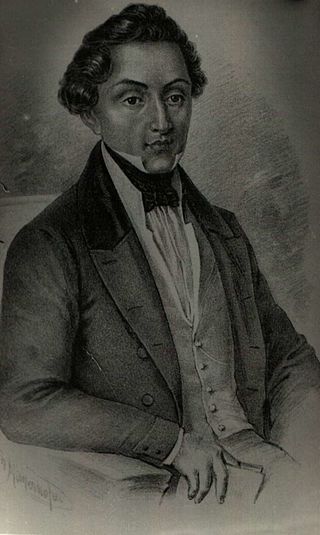 4
Yuriy Ivanovich Venelin was a Rusyn slavist, folklorist, ethnographer and philologist best known for his research on the language, history and culture of Bulgaria and its people.
4
Yuriy Ivanovich Venelin was a Rusyn slavist, folklorist, ethnographer and philologist best known for his research on the language, history and culture of Bulgaria and its people.
Mikhail Skobelev
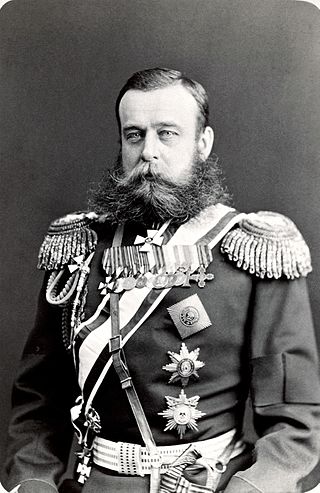 4
Mikhail Dmitriyevich Skobelev, a Russian general, became famous for his conquest of Central Asia and for his heroism during the Russo-Turkish War of 1877–1878. Dressed in a white uniform and mounted...
4
Mikhail Dmitriyevich Skobelev, a Russian general, became famous for his conquest of Central Asia and for his heroism during the Russo-Turkish War of 1877–1878. Dressed in a white uniform and mounted...
Dimitar Talev
 4
Dimitar Talev was a Bulgarian writer, journalist, political prisoner, and member of the Bulgarian National Assembly.
4
Dimitar Talev was a Bulgarian writer, journalist, political prisoner, and member of the Bulgarian National Assembly.
Hilarion of Makariopolis
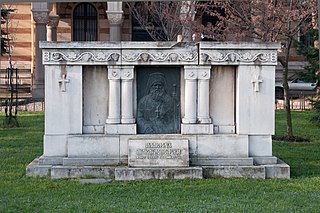 4
Hilarion of Makariopolis was a 19th-century Bulgarian cleric and one of the leaders of the struggle for an autonomous Bulgarian church.
4
Hilarion of Makariopolis was a 19th-century Bulgarian cleric and one of the leaders of the struggle for an autonomous Bulgarian church.
Konstantin Fotinov
 4
Konstantin Georgiev Fotinov was a Bulgarian writer, translator and enlightener of the Bulgarian National Revival period. The publisher of the first Bulgarian-language magazine, he is regarded as the...
4
Konstantin Georgiev Fotinov was a Bulgarian writer, translator and enlightener of the Bulgarian National Revival period. The publisher of the first Bulgarian-language magazine, he is regarded as the...
Лиляна Димитрова
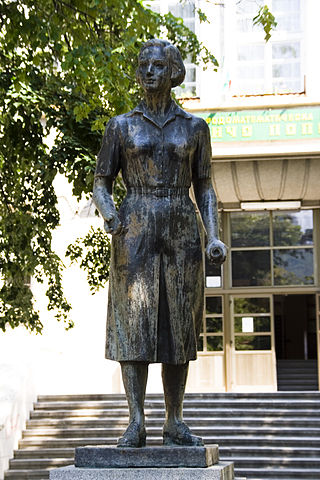 4
Лиляна Николова Димитрова, с псевдоним Блага, е деятелка на младежкото и работническо комунистическо движение в България. Участва в комунистическото съпротивително движение през Втората световна...
4
Лиляна Николова Димитрова, с псевдоним Блага, е деятелка на младежкото и работническо комунистическо движение в България. Участва в комунистическото съпротивително движение през Втората световна...
Тодор Икономов
 4
Тодор Поппетров Икономов, или Тодор Икономпетров Тодоров, е български писател, публицист, издател и политик. Един от най-видните възрожденски учители и участници в борбата за създаване на независима...
4
Тодор Поппетров Икономов, или Тодор Икономпетров Тодоров, е български писател, публицист, издател и политик. Един от най-видните възрожденски учители и участници в борбата за създаване на независима...
Dobri Voynikov
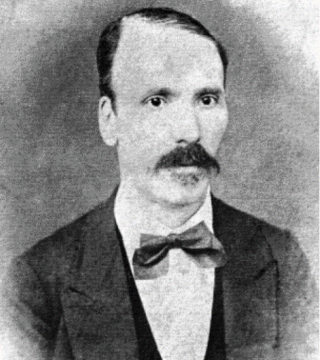 4
Dobri Popov Voynikov was a Bulgarian teacher, playwright and journalist of the Bulgarian National Revival. He is regarded as the father of modern Bulgarian theatre and the first Bulgarian producer....
4
Dobri Popov Voynikov was a Bulgarian teacher, playwright and journalist of the Bulgarian National Revival. He is regarded as the father of modern Bulgarian theatre and the first Bulgarian producer....
Николай Петрини
 3
Николай Александрович Петрини e български политик от Българския земеделски народен съюз (БЗНС). След Деветоюнския преврат е сред водачите на крайнолявото крило в партията и ръководител на създадената...
3
Николай Александрович Петрини e български политик от Българския земеделски народен съюз (БЗНС). След Деветоюнския преврат е сред водачите на крайнолявото крило в партията и ръководител на създадената...
Марко Балабанов
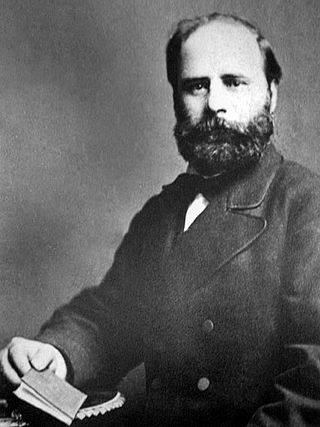 3
Марко Димитриев Балабанов е български юрист и политик, първи външен министър на България и председател на XI обикновено народно събрание през 1901 г..
3
Марко Димитриев Балабанов е български юрист и политик, първи външен министър на България и председател на XI обикновено народно събрание през 1901 г..
Dimitar Dimov
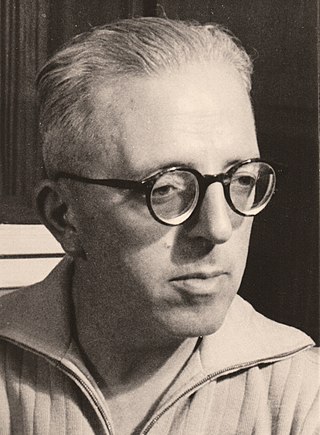 3
Dimitar Todorov Dimov was a Bulgarian dramatist, novelist and veterinary surgeon.
3
Dimitar Todorov Dimov was a Bulgarian dramatist, novelist and veterinary surgeon.
Prince Marko
 3
Marko Mrnjavčević was the de jure Serbian king from 1371 to 1395, while he was the de facto ruler of territory in western Macedonia centered on the town of Prilep. He is known as Prince Marko and...
3
Marko Mrnjavčević was the de jure Serbian king from 1371 to 1395, while he was the de facto ruler of territory in western Macedonia centered on the town of Prilep. He is known as Prince Marko and...
Noel Buxton
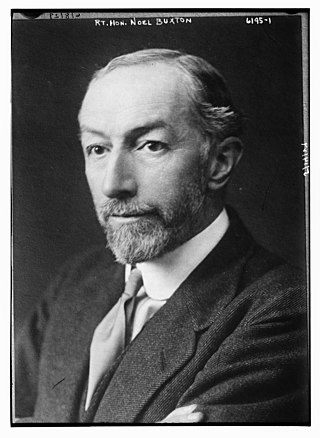 3
Noel Edward Noel-Buxton, 1st Baron Noel-Buxton, PC was a British Liberal and later Labour politician. He served as Minister of Agriculture and Fisheries under Ramsay MacDonald in 1924 and between...
3
Noel Edward Noel-Buxton, 1st Baron Noel-Buxton, PC was a British Liberal and later Labour politician. He served as Minister of Agriculture and Fisheries under Ramsay MacDonald in 1924 and between...
Rayko Zhinzifov
Asen Zlatarov
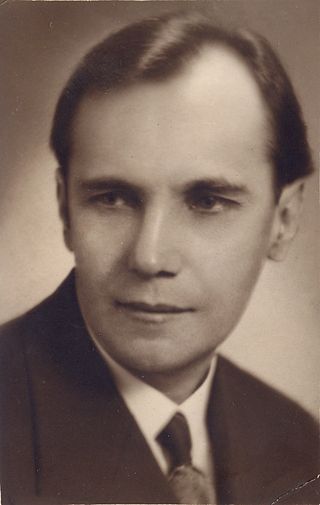 3
Asen Zlatarov was a Bulgarian biochemist, writer and social activist.
3
Asen Zlatarov was a Bulgarian biochemist, writer and social activist.
Александър Дондуков-Корсаков
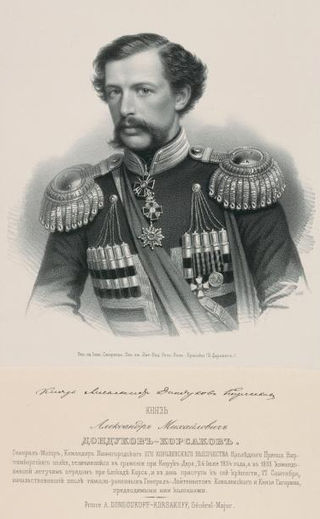 3
Княз Александър Михайлович Дондуков-Корсаков е руски офицер, генерал от кавалерията. Участник в Руско-турската война и създаването на Княжество България.
3
Княз Александър Михайлович Дондуков-Корсаков е руски офицер, генерал от кавалерията. Участник в Руско-турската война и създаването на Княжество България.
Христо Ясенов
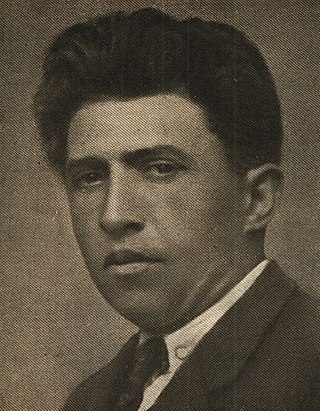 3
Христо Ясенов е български поет и активист на Българската комунистическа партия (БКП).
3
Христо Ясенов е български поет и активист на Българската комунистическа партия (БКП).
Tervel of Bulgaria
 3
Khan Tervel also called Tarvel, or Terval, or Terbelis in some Byzantine sources, was the khan of Bulgaria during the First Bulgarian Empire at the beginning of the 8th century. In 705 Emperor...
3
Khan Tervel also called Tarvel, or Terval, or Terbelis in some Byzantine sources, was the khan of Bulgaria during the First Bulgarian Empire at the beginning of the 8th century. In 705 Emperor...
Elisaveta Bagryana
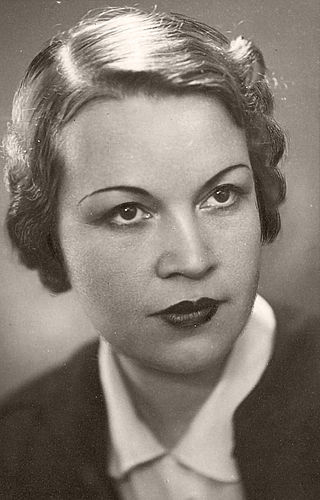 3
Elisaveta Bagryana, born Elisaveta Lyubomirova Belcheva, was a Bulgarian poet who wrote her first verses while living with her family in Veliko Tarnovo in 1907–08. She, along with Dora Gabe...
3
Elisaveta Bagryana, born Elisaveta Lyubomirova Belcheva, was a Bulgarian poet who wrote her first verses while living with her family in Veliko Tarnovo in 1907–08. She, along with Dora Gabe...
Никола Михайловски
 3
Никола Стоянов Михайловски е български книжовен и обществен деец, дописен член на Българското книжовно дружество от 1874 г.
3
Никола Стоянов Михайловски е български книжовен и обществен деец, дописен член на Българското книжовно дружество от 1874 г.
Alexander Bogoridi
 3
Prince (Knyaz) Alexander Stefanov Bogoridi was an Ottoman statesman of Bulgarian origin.
3
Prince (Knyaz) Alexander Stefanov Bogoridi was an Ottoman statesman of Bulgarian origin.
Страхил войвода
 3
Страхил войвода е роден в с. Йеникьой в средата на 17 век. Друга версия поставя родното му място в с. Овчарци. Населени места като Батак, Мало Конаре и Ловеч също считат, че е техен гражданин. За...
3
Страхил войвода е роден в с. Йеникьой в средата на 17 век. Друга версия поставя родното му място в с. Овчарци. Населени места като Батак, Мало Конаре и Ловеч също считат, че е техен гражданин. За...
Георги Икономов (революционер)
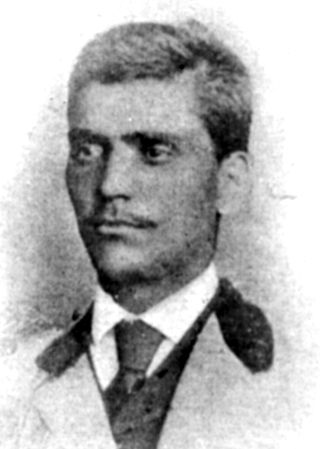 3
Георги Поптодоров Икономов е български революционер.
3
Георги Поптодоров Икономов е български революционер.
John the Exarch
 3
John the Exarch was a medieval Bulgarian scholar, writer and translator, one of the most important men of letters working at the Preslav Literary School at the end of the 9th and the beginning of the...
3
John the Exarch was a medieval Bulgarian scholar, writer and translator, one of the most important men of letters working at the Preslav Literary School at the end of the 9th and the beginning of the...
Lazar Madzharov
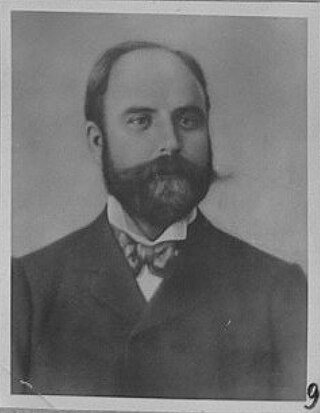 3
Lazar Madzharov was a Bulgarian revolutionary, member of the Internal Macedonian Revolutionary Organization (IMRO) and Bulgarian teacher.
3
Lazar Madzharov was a Bulgarian revolutionary, member of the Internal Macedonian Revolutionary Organization (IMRO) and Bulgarian teacher.
Petrova Niva
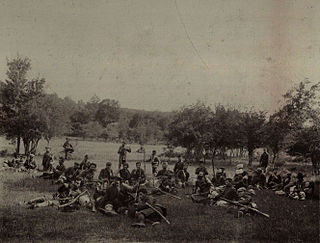 3
Petrova Niva is a historic area in the Strandzha mountains of southeastern Bulgaria where, between 11 and 13 July 1903, a group of Bulgarian Internal Macedonian-Adrianople Revolutionary Organization...
3
Petrova Niva is a historic area in the Strandzha mountains of southeastern Bulgaria where, between 11 and 13 July 1903, a group of Bulgarian Internal Macedonian-Adrianople Revolutionary Organization...
Felix Philipp Kanitz
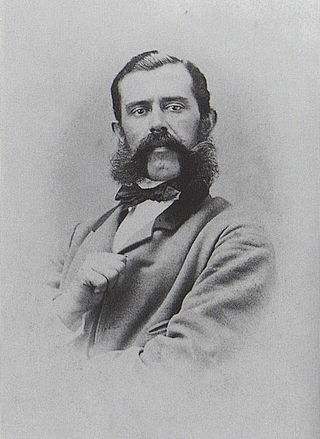 3
Felix Philipp Kanitz was an Austro-Hungarian naturalist, geographer, ethnographer, archaeologist, painter and author of travel notes, of Jewish heritage.
3
Felix Philipp Kanitz was an Austro-Hungarian naturalist, geographer, ethnographer, archaeologist, painter and author of travel notes, of Jewish heritage.